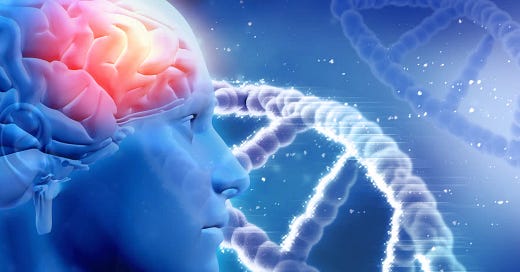How A New "Junk DNA" Gene In Humans Caused Us To Have Larger Brains
To story of a long non-coding RNA that began generating a helpful protein.
Humans, chimpanzees and bonobos, share most of our DNA. In fact, human and chimp genomes are nearly 90% exactly aligned in most regions… making not many unique genes between chimpanzees and human. As a result, little alterations can affect gene timing or activity levels and subsequently have an impact that is not proportional to the number of bases modified. However, this does not imply that recently evolved genes are unimportant to the evolution of humans.
In a report1, published this week, the evolution of a novel class of genes since our split from our simian forebears is examined. These areas in our genome has been known as ‘junk DNA.’ The research team examined one of these recently evolved genes and discovered that it is crucial for the development of larger brains after learning more about how this class of genes arose.
Keep reading with a 7-day free trial
Subscribe to Anthropology.net to keep reading this post and get 7 days of free access to the full post archives.



